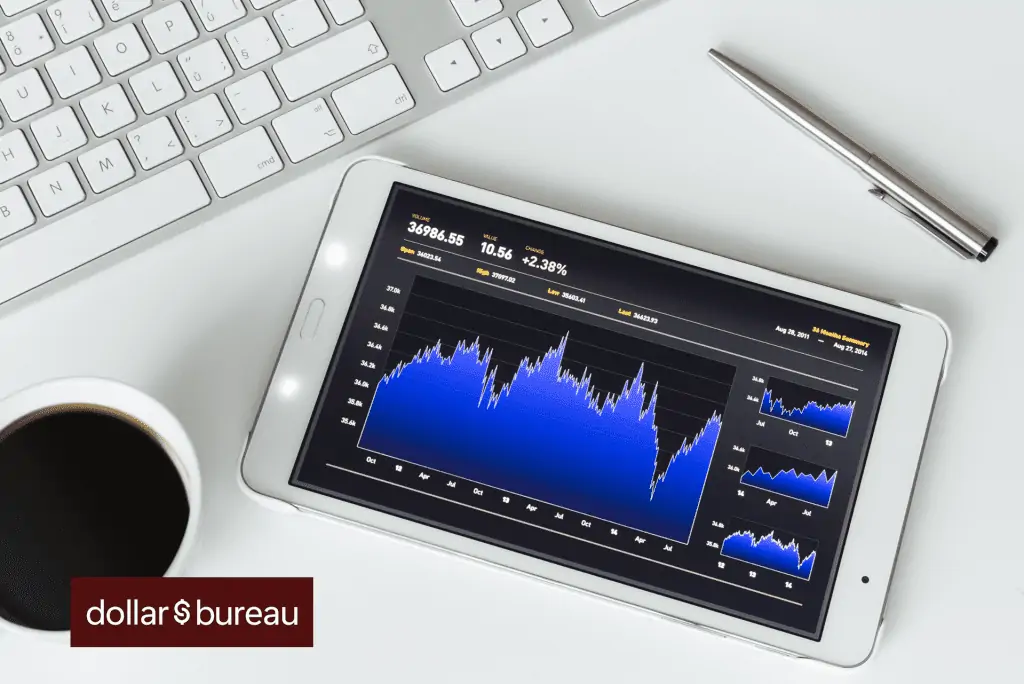Owning stocks today is considered a high-status symbol.
But aside from the many praises you get, stocks are also a great way to strengthen your future income.
Moreover, most Singapore companies pay out dividends to all shareholders which can be an excellent addition to your active income.
So, it comes as no surprise that 52% of Singaporeans invest in stocks, which is around 1.5 million Singapore citizens.
However, here comes the question “What are the best Singapore stocks to buy?”
After a few hours of research, I can safely say that I’ve found the best ones on the Singaporean Exchange Market (SGX) in 2022!
In this guide, I will tip you on how to choose the best shares that the exchange market offers and give the top Singapore growth stocks that every investor should consider!
Let’s get straight to the best Singapore stocks to buy!
Best Singapore Stocks to Buy
- DBS Group (SGX: D05)
- Sheng Siong Group (SGX: OV8)
- Singapore Exchange Limited (SGX: S68)
- United Overseas Bank (SGX: U11)
- Singapore Telecommunications Limited – Singtel (SGX: Z74)
When it comes to investing, stocks are a great way to boost your portfolio.
As I said, you can receive active revenue from them through the dividends they give, and you can keep them for as long as you like.
Simply put, you will never run out of income!
But, the shares market has many options. And not everyone has the time to lose countless hours researching every company that the SGX has listed.
Luckily, I did that for you! Here are my top 5 choices of the best Singapore stocks to buy!
1. DBS Group (SGX: D05)
- Industry: Banking and Investment services
- Stock Price: S$37.25
DBS is Singapore’s largest bank. As such, you can rest assured that having stocks in this company presents a stable income.
An interesting fact is that in 2020 due to the pandemic, the Monetary Authority of Singapore (MAS) directed all local banks to put restrictions on their dividends up to 60% of what they paid in 2019.
At the same time, when this was imposed, DBS faced a record low share price of S$18.008.
However, even after such a hit, DBS rose to the top. Today, when these restrictions are lifted, it offers a dividend of S$0.33 – according to the records for 2021 – and a record-high share of S$37.25.
Moreover, based on the latest data from September 2021, DBS has a net income of S$5,905 million.
Aside from the huge growth, the CEO of this company reports that interest rates are waiting to raise due to the inevitable inflation.
This would go well for the company, seeing that this would only increase the net income even further.
2. Sheng Siong Group (SGX: OV8)
- Industry: Food Retail and Distribution
- Stock Price: S$1.5
Sheng Siong is a one-stop online shop. It was established in 2013 and is operated by Sheng Siong Supermarket Pte Ltd. which is one of the most well-known supermarket giants in Singapore.
It offers a variety of products that can be delivered straight to your home.
Having in mind the ongoing pandemic, this company grew naturally and reached a 40.6% jump in net profit and 83.7% in net income.
According to the latest records, it has a net income of S$132.38 million with a P/E ratio of 16.816.
With this growth, the dividend jumped to S$0.031 in 2021 as a contrast to the previous S$0.018 in 2020.
Even with this jump, the CEO of Sheng Siong says that this is only the beginning. They plan on opening new outlets throughout the year.
However, they are not just stationed in Singapore. China already has 4 outlets of this company which are extremely profitable.
3. Singapore Exchange Limited (SGX: S68)
- Industry: Banking, Investment, Financial services
- Stock Price: S$9.86
Singapore Exchange Limited is the sole exchange market in Singapore.
As a monopoly, you can see why having a stock in this firm provides way more security than in any other company.
Although at the beginning of 2021, SGX reported a 6% decrease in the net profit and a flat revenue at S$1 billion, the end report showed good results.
Namely, SGX presented S$3,022.55 million in assets and total revenue of S$1,056 million.
The reason behind this slight downfall was the few acquisitions SGX made during that period.
It also has a high ROE ratio of 33.874% and an acceptable ROA ratio of 13.738%.
Moreover, the current dividend yield is S$0.08.
4. United Overseas Bank (SGX: U11)
- Industry: Banking and Investment services
- Stock Price: S$32.57
Present for around 80 years, United Overseas Bank (UOB) has set its foot on the Singaporean Exchange Market.
Surprisingly, the lowest plummet of this company came by the end of 2021 when the stocks were at the lowest, or at S$25.47.
That is understandable considering the previously mentioned restriction placed by MAS.
However, after lifting them, this company showed remarkable growth.
Namely, it slowly rose to the current share pricing of S$32.57 and reported S$431,814 million in total assets.
Interestingly enough, the total debt of this company is S$30,590 million. This places the debt-to-asset ratio at around 0.07% which is deemed as a good proportion.
Plus, the dividend has been growing steadily and amounted to the current S$0.99.
5. Singapore Telecommunications Limited – Singtel (SGX: Z74)
- Industry: Telecommunications services
- Stock Price: S$2.53
Although it comes with a fairly low stock price, Singtel is one of the top Singapore growth stocks.
As a telecommunication services company, Singtel is one of the leaders in this industry.
This is not only backed up by its vast assortment of plans, but also by the fact that it’s the first 5G Standalone (SA) network in Singapore.
Its idea is to connect all of Singapore with the new 5G technology.
And with the naturally brought need for this tech as well as the fact that it’s only looking to the future, purchasing stock in this company is a safe bet.
In the last report, Singtel showed a net income of S$1,041 million and a debt-to-assets ratio of 0.26%.
Although at the beginning of 2021 the dividend yield dropped to S$0.027, by the end it grew double and rounded to S$0.045.
An interesting thing is the P/E ratio of 39.86. You might think that this is too high and having a high P/E ratio is not good.
But in this case, it means that the company is growing considering the new technology it is bringing.
How to Choose the Right Stocks for You
As great as it sounds to have some Singapore growth stocks, they are not risk-free.
The biggest downside is the unknown that is tied to them.
Namely, you can never be completely sure if a company booms or loses value tomorrow.
However, there are some great ways to make sure the latter doesn’t happen.
I have extracted some stellar tips that you should know before you start looking for the best Singapore stocks to buy!
Is the Industry Growing?
You always need to check the industry in which a company works. How does it correspond with the current economy?
Take the Covid pandemic for example.
As unfortunate as it has been, the whole medical industry took a huge leap forward.
This naturally means that anyone who had a few stocks in a pharmaceutical company, or a hospital, got a big raise in their portfolio.
On the other side of the coin was the entertainment industry. For anyone with stocks in this sector, they sadly had to sell or find other ways to regain their loss.
Is the Company Growing?
Next comes the company itself.
Has it been reporting growth for the last couple of years or has it stagnated?
An increase in profits means that the company is doing something right.
Research the financial history of the company. Even small steps show that it is working.
And the more it does, the more you will gain as a shareholder.
Plus, if a company is gradually doing better, then there are higher chances for it to survive on the market.
How Effective is the Company’s Leadership?
This is connected to the previous discussion. Namely, if the management and higher-ups in the company know what they are doing, then the company is sure to grow.
But, what usually happens is a certain shortage in this department, so the company as a whole suffers as a result.
Make sure that you research first who consists of the top tier of a company. In a well-managed company, the stocks grow with time, regardless of the economical or other external factors.
Share Price History
Nobody wants a stagnant stock. The whole reason why you’d invest in stocks is to gain more profit than the initial investment.
This is why it’s important to research the history of the share.
How much was the price before?
Is there an upward trend?
You can also check the movement of the dividend yield. If it has grown and you get more revenue, then naturally that means that the share price has increased too.
Always Check the Company’s Debt
Debt is the safest way to see if a company is doing good or not.
Naturally, if a company is buried with debt, that means that they have poor financial planning skills.
And this would naturally influence your stocks in it.
This is not to say that you should only look for a company that has no debt whatsoever.
Some industries are simply more prone to debt than others. The main reason is due to the different capital levels in them.
For example, utilities and financial services have the highest debts, whereas wholesalers and service industries have the lowest.
Price-to-Earnings (P/E) Ratio
A price-to-earnings ratio tells you if the stock is worth the trouble.
Simply said, it reflects the company’s earnings. This can tell you if a share is overpriced or underpriced depending on how much the company has profited over a given period.
You can find the P/E ratio by dividing the price of the company’s share by its earnings per share from that year, or the estimated ones for the following.
For instance, if a company’s share is S$20 and its earnings go for S$2 per share, then the P/E ratio is 10.
P/E ratios are usually compared to a company’s competitors or the industry it operates in.
This is a great way to see how a company ranks in its industry.
Companies that have a higher P/E ratio are not good for you as a consumer, but they are deemed more valuable to invest in than those with a lower one.
Why are Stocks on the Singaporean Market Growing?
The short answer is that the world is finally opening up following the pandemic lockdown. The longer answer has a lot to do with the global and national economy.
Namely, the Asian stock market was making billions for years prior to the Covid pandemic. But, like the rest of the world, the unknown hit plummeted these earnings.
During the pandemic of 2020, in Singapore, there were several rules imposed by the Monetary Authority of Singapore (MAS) which led to a slight decrease in the stocks of many companies.
For that same reason, there was fear of continuing restrictions and tightening of the monetary policy.
However, seeing that the world and other bourses like Hong Kong, China, Malaysia, and Taiwan eased their rules and advanced forward, it was decided that the Singaporean stock market will be left unscathed.
This is where it gets tricky. China and the US are both mega stock markets for Singaporean companies.
And for that very same reason, investors are treading carefully, waiting to see how the inflation numbers in these 2 countries compare and will look in the near future.
Deutsche Bank Research informs that although there will be a downfall in the stocks, the Asian stock market is expected to remain steady.
In simpler terms, it won’t perform excellently but the growth will be significant and bigger than that from the pre-Covid era.
This notion will come coupled up with rising demand for goods and services from clients all over, which will then result in the need for more output. And all of this will inevitably leave enough room for Singapore stocks to rise.
Additionally, according to Trading Economics, the SGX is expected to trade at 3175.61 points by the end of 2022. This presumption is based on the 10.10% increase to the Straits Time Index (STI) at the beginning of 2022.
In the recent SGX data, the prediction of growth has proved to be correct for the Singaporean market. Namely, the 3 largest banks in Singapore – DBS, UOB, and OCBC Bank, are marking elevations in their stocks.
For example, DBS rose by 1.09%, reaching a strong S$37.25 buying price and S$37.26 selling. At the same time, UOB climbed by 0.18% – to S$32.57.
This only goes to show that the Singaporean exchange market is slowly growing back to its previous glory.
And as mentioned earlier, with the reopening of the world, Singaporean stocks are sure to keep their steady rise as well.
To understand this even better, let’s take a look at how the investment industry in Singapore has changed during the last few years.
We will also go over some of the reasons why people are investing which results in the stocks growing.
Macro Outlook of the Investment Industry in Singapore
One of the key influencers of a stock market’s fluctuation is the country’s economy. MAS released an economic review in April 2021 that outlined how the Singaporean economy fluctuated throughout these years.
In it, it stated that, as expected, the economy took a slight downward dip but starting with 2021 it began its road of recovery.
They noted a possible 6% increase in the GDP which shows a slight improvement from the previous year – indicating a growth of 5.4%.
It’s interesting to mention that China played a role in Singapore’s economic regrowth.
Namely, China stayed firm on its demand for goods, which kept the same exporting levels throughout this challenging period.
This, in return, contributed to increasing the domestic production levels, which came to level with China’s.
During this period, non-bank loans jumped by 0.2% in 2020 and this number rose in 2021 to 1.2%.
Around the same time, the Ministry of Trade and Industry forecasted a GDP growth for 2022 of 3%-5%.
Now, naturally, the investment industry followed the rise and fall of the overall economy.
But, it did slightly better, compared to other areas. Namely, just in 2020, the assets under management (AUM) rose 17% – 1.4% more than in 2019.
Mind you, that was happening amid a global crisis. It included all types of assets, too – REITs, stocks, real estate, private equity, and others.
We can’t ignore the fact that Hong Kong played some part in this rise as well. Due to the protests of 2019, many considered leaving Hong Kong and transferring to Singapore, thus taking a fair tool on their stock market.
But on the other hand, this also meant more investments and incentives for the Singaporean stock market.
Of course, Singapore is one of the few countries that managed the Covid crisis quite well.
And, coupled with the fact that it is a huge gateway to the Asian stock market, it’s no wonder that this industry sustained the pandemic.
You also need to take note of the previously mentioned MAS restrictions. Some of these influenced the banks in a way that made saving money in them for longer periods of time a fairly uncertain move.
Why Should You Invest in Singapore?
Now that you see the stability of the macroeconomy and especially the investment sector, you must wonder what else makes the overall investing – and specifically, buying stock – in Singapore so popular.
It’s fair to say that Singaporeans are no strangers to investing. Yes, stocks are what they’re most interested in and there are a few reasons why.
The main one is that there are no taxes in Singapore – there are no capital gain taxes nor withholding taxes.
This means that your shares and the dividend from these shares, regardless of whether you are a Singaporean citizen or not, are not subject to any taxation.
What you earn, you can fully keep!
Plus, Singapore has one of the most competitive economies in the world. This means that there is a broad selection of value stocks that can seep great amounts of income into your wallet.
Another interesting fact is that Singapore ranks as one of the top countries in intellectual property protection. This helps the stock market considering that you can invest in services or other IP-protected goods that are not available on other markets – and trigger a rise in their stocks.
Final Verdict
That’s a wrap on the best Singapore stocks to buy!
Adding shares to your financial methods can really help you. They are not just earnings that you can get throughout the year, but can also help you start a good retirement plan.
Investing is hard, but when done right it can bring many good things. Try this guide and learn more on how to invest in shares in Singapore!
Sometimes the stock market can be overwhelming even for long-time investors. This is where the helping hand of a good broker is needed.
In my opinion, one of the top brokers in Singapore is Moomoo!
This is the best investment platform for low fees. With Moomoo you get the chance to trade in many assets, a high level of security, the latest news about the stock market, many courses to help you learn more about your stocks, and so much more!
Plus, even though it is new to the market, this is one of the rare brokers that offer free Apple shares upon funding your account!
And if you can’t decide, you can always seek out help from a financial advisor in Singapore!










